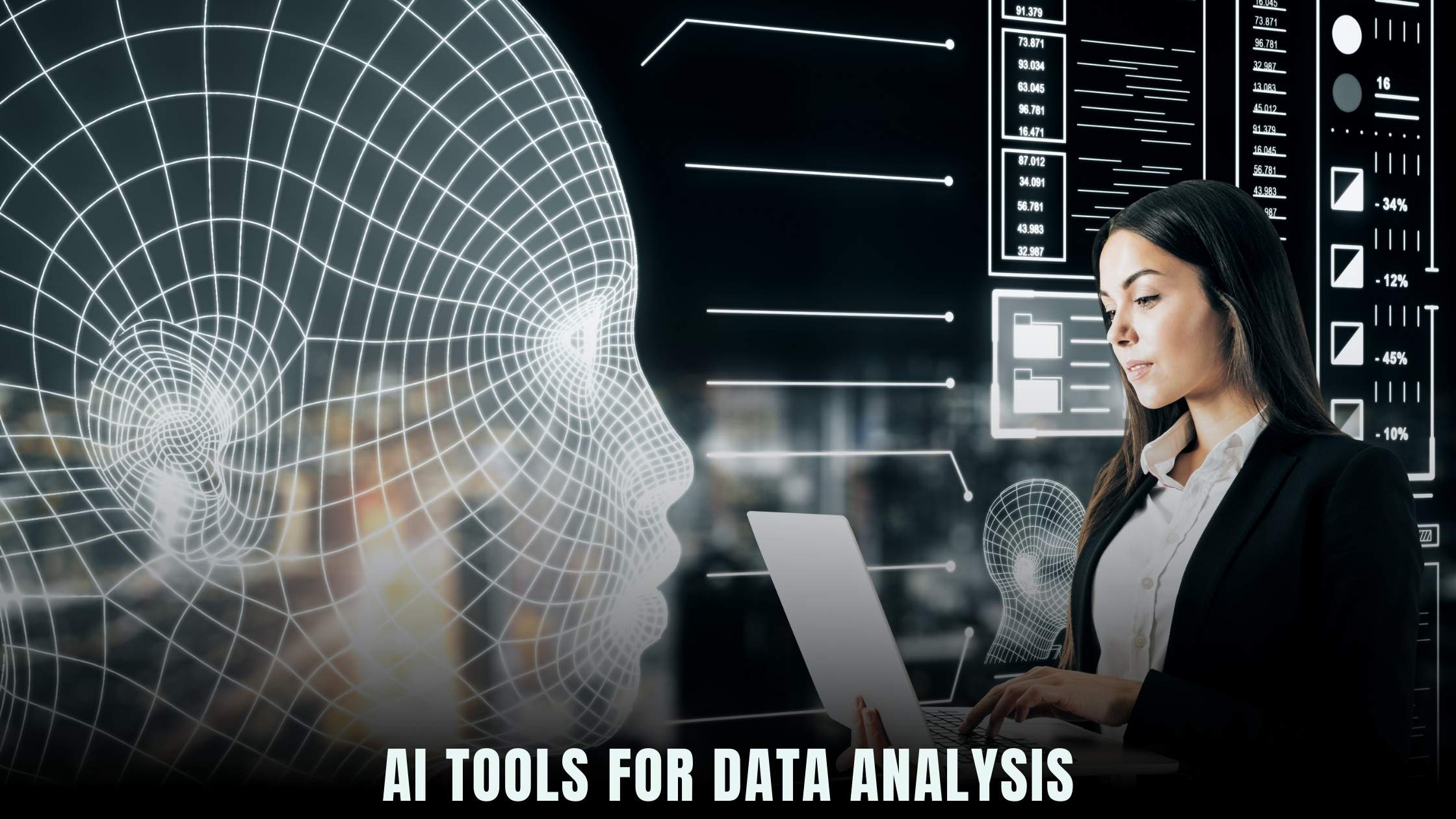AI Tools for Data Analysis: Exploring Possibilities
- AI Image Generators Software AI Writing Assistant Popular Tools AI Tools


In the rapidly evolving landscape of data analysis, the integration of artificial intelligence (AI) has revolutionized the way organizations extract insights from their data. AI-powered tools offer advanced capabilities to process, analyze, and interpret large datasets, empowering data analysts to uncover valuable insights and drive informed decision-making. In this article, we delve into the realm of AI tools for data analysis, exploring the possibilities and potential they hold for organizations across various industries.
The Rise of AI in Data Analysis
Artificial intelligence has emerged as a game-changer in the field of data analysis, enabling organizations to derive actionable insights from complex datasets with unprecedented speed and accuracy. Traditional methods of data analysis often fall short when dealing with the sheer volume and complexity of modern-day data sources. AI tools leverage advanced algorithms and machine learning techniques to handle big data, identify patterns, and extract meaningful insights, thereby enhancing the capabilities of data analysts and decision-makers.
1. Automated Machine Learning (AutoML)
Automated machine learning platforms, such as DataRobot and H2O.ai, empower data analysts with the ability to build, train, and deploy machine learning models without extensive programming or data science expertise. These platforms automate the end-to-end process of model development, from data preprocessing and feature engineering to model selection and optimization, making it accessible to a broader audience of data analysts and business users.
2. Natural Language Processing (NLP)
Natural Language Processing (NLP) tools, such as spaCy and NLTK, enable organizations to extract insights from unstructured text data, including social media posts, customer reviews, and news articles. By analyzing and interpreting natural language text, NLP algorithms can perform sentiment analysis, entity recognition, and topic modeling, providing valuable insights into customer opinions, market trends, and competitive intelligence.
3. Predictive Analytics
Predictive analytics platforms, such as RapidMiner and Alteryx, leverage AI and machine learning algorithms to forecast future trends, behaviors, and outcomes based on historical data patterns. These platforms enable data analysts to build predictive models, perform what-if scenarios, and simulate business scenarios to optimize decision-making and mitigate risks.
4. Image Recognition
Image recognition tools, such as TensorFlow and OpenCV, enable organizations to analyze and interpret visual data, including images and videos. These AI-powered algorithms can identify objects, detect patterns, and classify images, opening up possibilities for applications in healthcare, manufacturing, retail, and security.
5. Anomaly Detection
Anomaly detection algorithms, such as Isolation Forest and One-Class SVM, help organizations identify unusual patterns or outliers in their data that may indicate potential fraud, errors, or anomalies. By leveraging AI-driven anomaly detection tools, data analysts can proactively detect and mitigate risks, ensuring the integrity and reliability of their data-driven insights.
Relevant SaaS Products
1. Tableau
Tableau is a leading data visualization platform that integrates AI-driven analytics to help businesses explore, analyze, and visualize their data effectively. With features like Explain Data and Tableau Prep Builder, Tableau empowers users to uncover insights, identify trends, and make data-driven decisions with confidence.
2. IBM Watson Studio
IBM Watson Studio is a comprehensive AI and data science platform that enables businesses to build, deploy, and manage AI models at scale. With tools for data preparation, model development, and deployment, Watson Studio simplifies the end-to-end process of AI-powered data analysis, empowering organizations to drive innovation and accelerate time to value.
3. Google Cloud AutoML
Google Cloud AutoML offers a suite of AI-powered tools that enable businesses to build custom machine learning models without the need for extensive coding or data science expertise. With AutoML Vision, Natural Language, and Tables, businesses can leverage Google’s cutting-edge AI technology to automate data analysis tasks and extract valuable insights from their data.
4. Microsoft Power BI
Microsoft Power BI is a powerful business analytics tool that combines AI-driven insights with interactive visualizations to help businesses analyze data and share insights across the organization. With features like AI visuals, natural language Q&A, and automated machine learning, Power BI enables users to uncover hidden patterns and trends in their data effortlessly.
5. RapidMiner
RapidMiner is an integrated data science platform that offers AI-driven analytics, machine learning, and predictive modeling capabilities. With a visual workflow designer and automated model building, RapidMiner simplifies the process of data analysis and empowers businesses to extract actionable insights from their data quickly.
To unlock the full potential of AI tools for data analysis and gain access to premium solutions mentioned in this article, businesses can leverage Subscribed.FYI Deals. By signing up for free, users can explore exclusive deals and discounts on top-notch AI-powered data analysis platforms, empowering them to streamline workflows, drive innovation, and achieve tangible business outcomes through data-driven decision-making.
Relevant Product Links:
- Tableau
- IBM Watson Studio
- Google Cloud AutoML
- Microsoft Power BI
- RapidMiner
- Subscribed.FYI
- Subscribed.FYI Deals





